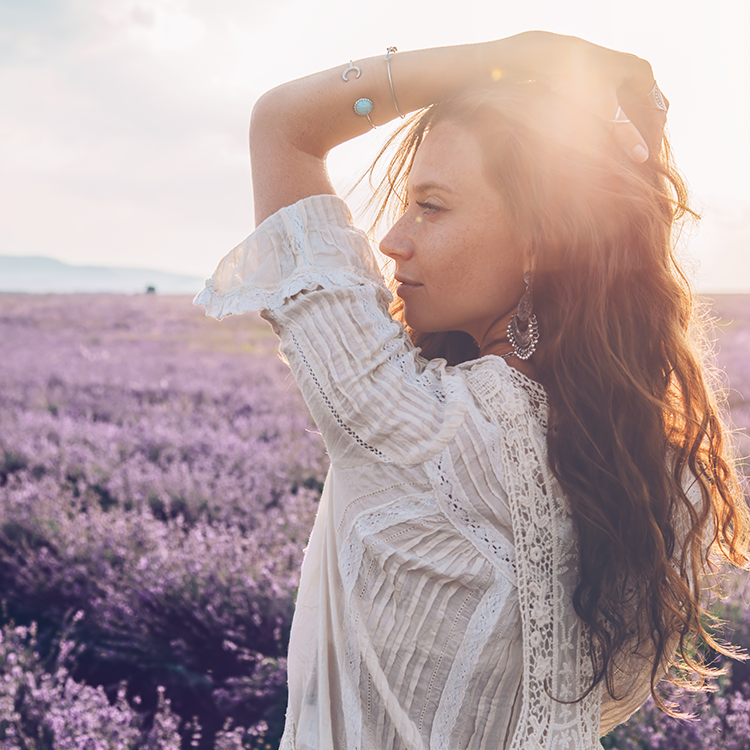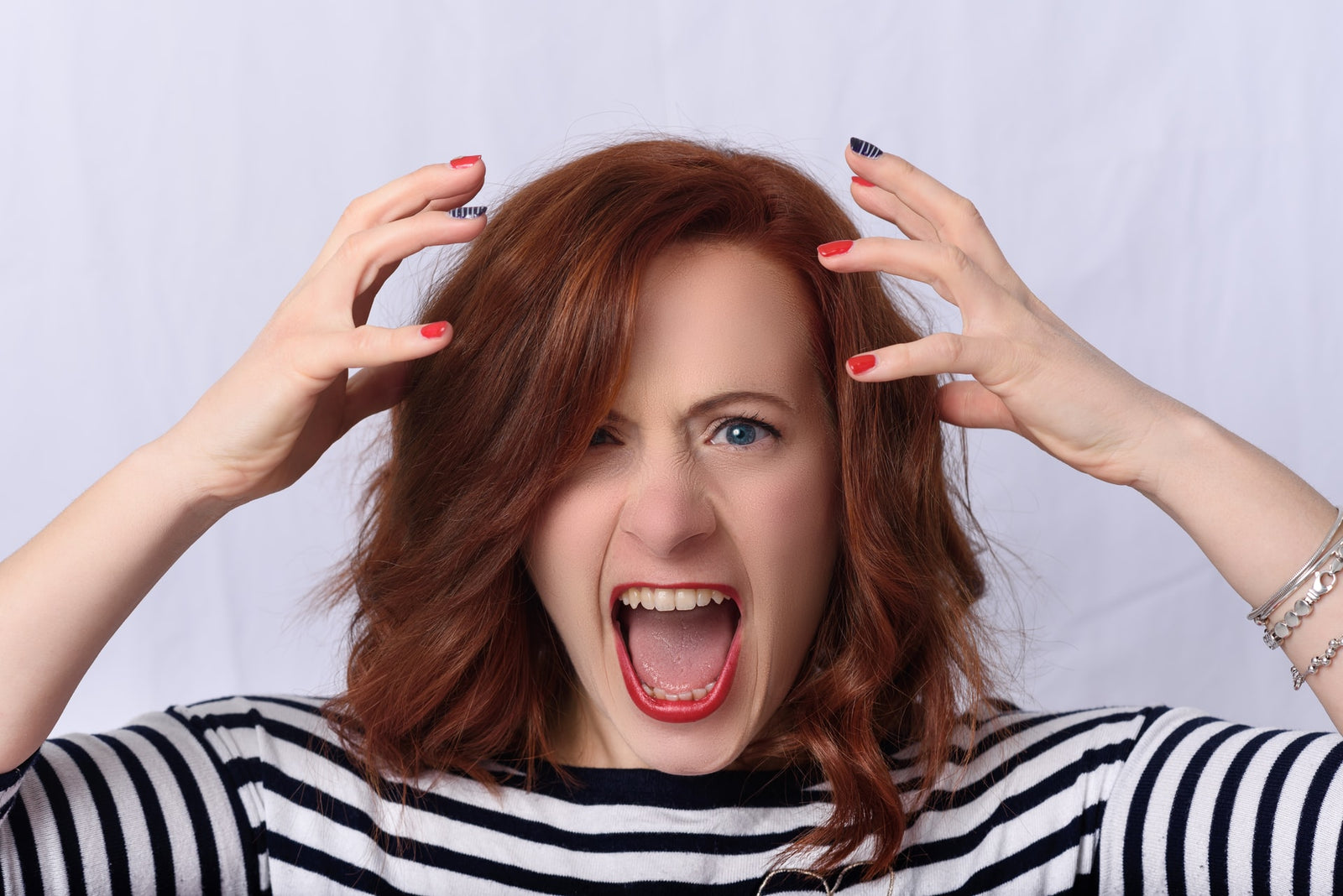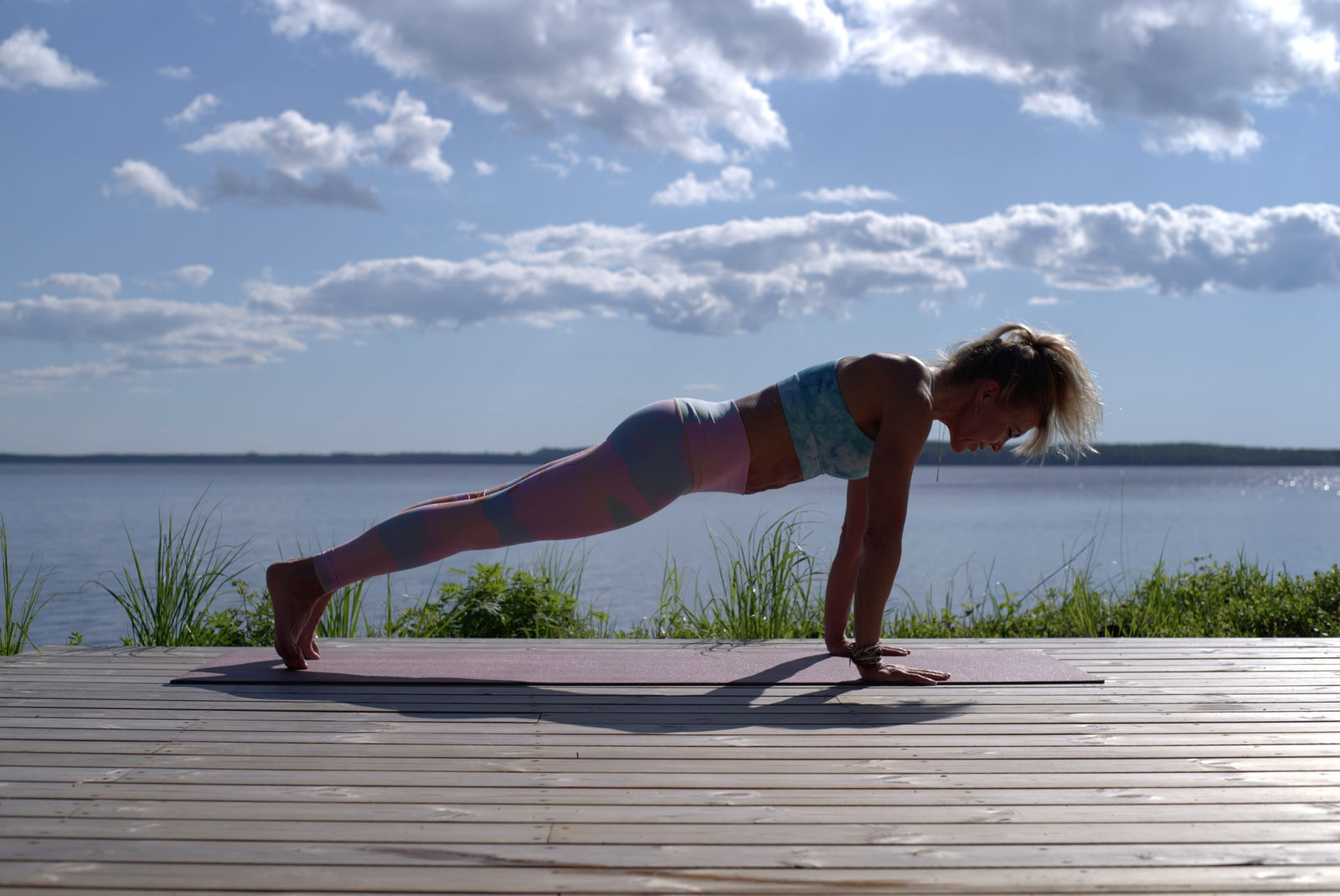Photo by Katherine Hanlon on Unsplash
Hormone therapy has been the common prescription for treating menopausal symptoms, but not everyone wants to do it (or at least not ready to). Some worry about the side effects, while others are just not convinced.
Luckily, for those who do not want to undergo hormone therapy but desire to alleviate the bothersome symptoms (especially hot flashes and night sweats), there is always non-hormonal therapy.
Exercise helps with insomnia, mood swings, and anxieties, while controlled diet aids with avoiding hot flashes. [1] Dietary supplements are also another option, especially those with ingredients that directly or indirectly aid in correcting hormonal imbalance during menopause.
So if you want to know more about natural ways to balance your hormones, this article is for you. Continue reading as we talk more about three herbal ingredients in supplements that are believed to increase hormones and address your menopausal symptoms.
Chasteberry
Chasteberry (or Vitex agnus-casus) is a shrub that grows in the regions of Central Asia and the Mediterranean. It can be identified by its violet flowers, but the small brown fruit is the one usually used for medicinal purposes. The chasteberry fruit is about the size of peppercorns that has a peppermint-like aroma. The ancient Romans used this to lower down human libido, particularly of their monks—hence the other name monk’s pepper.
However, in modern time Germany, chasteberry is used to treat cyclic mastalgia or breast pain during pre-menstruation. They thought chasteberry is effective in stopping prolactin—the hormone related to irregular menstrual periods—from being produced. And they are right. As a herbal medicine, chasteberry has been believed by researchers to decrease levels of prolactin, which rebalances estrogen and progesterone. [2, 3] Because of this attribute, chasteberry has been believed to relieve menopause symptoms as well.
In one study, essential oils from chasteberry were given to a group of women experiencing menopause and reportedly got symptomatic relief from common symptoms. A follow-up study showed major to moderate improvements when using chasteberry cream. [4]
While there a lot of small tests and anecdotal evidence of the efficacy of chasteberry in relieving hot flashes during menopause, these are still considered insufficient without large-scale, controlled tests. It is clear however that it is effective for menopausal symptoms when taken as a supplement, especially when mixed with other herbs like St. John’s Wort (for depression and anxiety).
Chasteberry is considered safe to take in limited amounts (not more than 1000 mg a day), with rare, light side effects ranging from nausea, stomach issues, diarrhea, to itchy rash. [5] However, since it tampers with hormones, the following individuals are advised not to take chasteberry in any form:
- Pregnant or breastfeeding women
- Taking birth-control pills or antipsychotic drugs
- Undergoing hormone therapy
Black Cohosh
Sometimes called black snakeroot, bugbane, or rattleweed, black cohosh is a member of the buttercup family and is native to North America. European colonists found that for years, black cohosh roots have been brewed by Native Americans to treat women’s hormonal problems, fatigue, and fever, among others. During the 1950s, supplements from black cohosh have been commonly used to relieve menopausal symptoms, like hot flashes.
Some studies show that it seems to have estrogen-like effects when taken by the body. This is the reason why it could be effective in easing hot flashes, night sweats, and depressed mood during menopause. However, many experts say that further research is needed to solidify this claim.
What is generally accepted though, is that certain black cohosh extracts and combinations with other plants may reduce menopausal symptoms. Research on Remiferin, a black cohosh extract, shows that its effects are the same as hormonal therapy! In some other studies, black cohosh combined with other ingredients such as Rhodiola and St. John’s Wort might do a great job in reducing menopause symptoms. [6]
Black cohosh is generally safe to take as a supplement at small doses. In large doses, mild side effects like stomach aches, headaches, and cramping may occur. A rare, liver damage may also likely happen, albeit uncommon. It is advised to stop taking products with black cohosh and consult with a medical professional if ever liver trouble symptoms such as abdominal swelling, dark urine, and jaundice (yellowing of skin and white part of eyes) occur.
Pregnant and lactating women are not advised to take black cohosh. For those with medical conditions planning to take products with black cohosh, it is better to consult first with a physician.
Dong Quai
Dong Quai, also known as Chinese angelica or “female ginseng”, is a traditional herb of Chinese origin that has been used to treat various women’s hormonal-related issues. It has green-yellow flowers. The rhizomes, the one being used for medicinal purposes, has been shown to have effects on the estrogen of animals and serotonin in humans. [7] Because of this, it is commonly used to treat menstrual cramps and hot flashes during menopause.
While evidence suggests taking dong quai alone is enough to relieve menopause symptoms, there is also proof that combining it with other ingredients such as chamomile, chasteberry, black cohosh, and licorice root are potent as well. [8]
Dong Quai is safe to take in small doses for a short period. Possible side effects include becoming extra-sensitive to sunlight, diarrhea, and fever.
As a rule of thumb, always consult with your medical provider before taking in supplements. For dong quai, it is not advisable if you are:
- pregnant or breastfeeding
- taking anticoagulant or blood-thinning medications
- taking medicines for anxiety, or high blood pressure
- having treatment for hormone-related cancer
Conclusion
Chasteberry, Black Cohosh, and Dong Quai are some medicinal herbs that can help you on easing your menopause symptoms, especially hot flashes and night sweats. They are all in some way have effects similar to rebalancing your hormones, an outcome that is desired when one wants a more natural alternative to hormone therapy.
Evidence shows that there are no issues with taking each of them as supplements in small doses. Also, it is suggested that they are all more effective when combined with other ingredients. There are products in the market like the Vali Balance Menopause Relief Vegan Capsules that contain Chasteberry Berries Vitex, Licorice Root, Black Cohosh Root, St. John’s Wort Aerial, and Dong Quai Angelica. It aims to give you natural menopause relief and hormonal balance that aligns with your body sensitivity.
But as with any other supplements, it is proper to consult first with your medical provider to be sure about any precautions—we do not want any of your menopause symptoms to be just replaced by another illness.
Sources:
[1] https://www.valiup.com/blogs/vali-blog/menopausal-symptoms
[2] https://www.healthline.com/nutrition/vitex#womens-reproduction
[3] https://www.ncbi.nlm.nih.gov/pmc/articles/PMC3800090/
[4] https://pubmed.ncbi.nlm.nih.gov/12852933/
[5] https://www.webmd.com/vitamins-and-supplements/chasteberry-uses-and-risks
[6] https://www.webmd.com/vitamins/ai/ingredientmono-857/black-cohosh
[7] https://www.healthline.com/nutrition/angelica-root#benefits
[8] https://www.webmd.com/vitamins/ai/ingredientmono-936/dong-quai








